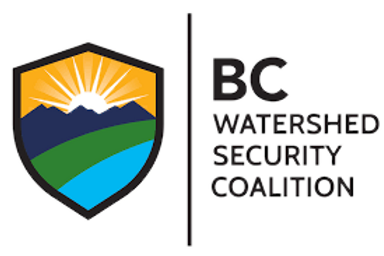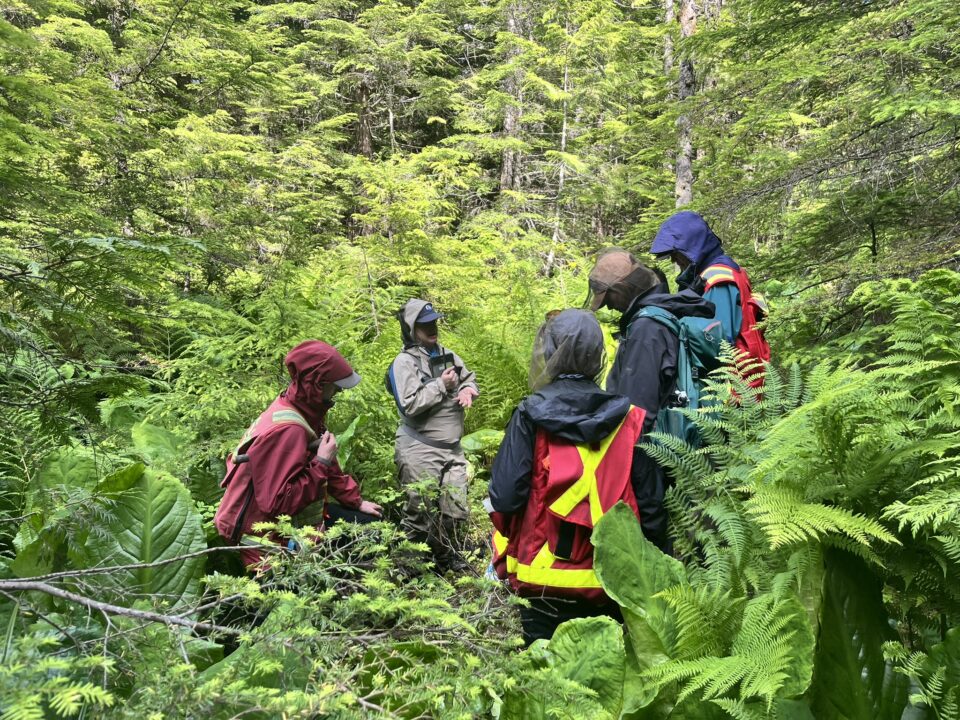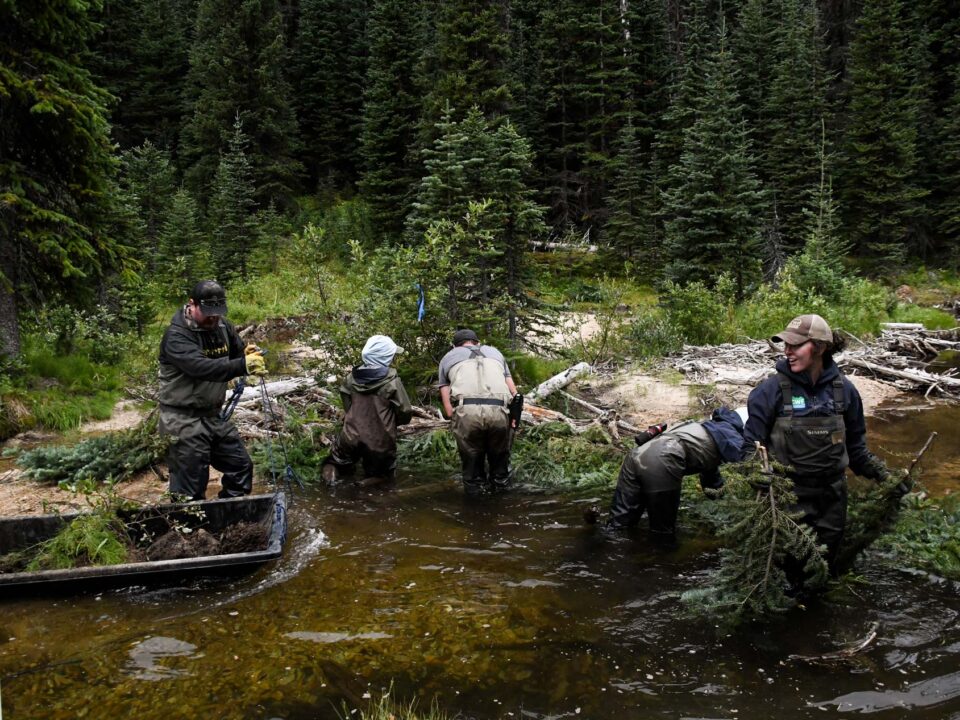
BC Budget falls short on province-wide drought protection
February 22, 2024
BC Watershed Security Coalition celebrates World Water Day & calls for governments to invest in watershed security
March 22, 2024Opinion: the absolute basics include implementing groundwater licensing, providing source drinking water protection and setting environmental and critical flow thresholds.
Laura Brandes and Robert Sandford. March 19, 2024. Original article.
It’s almost World Water Day, a day to draw attention to just how important fresh water is in our lives.
This World Water Day, British Columbians face the reality of another record-setting year of drought. The profound effects of last year’s relentless dry weather have continued into 2024. Snowpacks are at record lows and half the province is currently experiencing drought at what should be a wet time of year.
It’s a fact that the future we are facing is uncertain. The recent string of devastating and deadly floods, droughts and wildfires in B.C. foreshadow a chaotic future — a future where these events are not only more common, but also increasingly severe.
But, this doesn’t mean communities can’t be strong, resilient and safe in the face of climate change.
Water and climate are intrinsically intertwined, and how we manage and govern water will directly inform how we adapt to climate change.
On World Water Day this Friday, British Columbians can celebrate a number of milestones and good work being done in communities across B.C. to maintain, restore and improve healthy watersheds. This work takes different forms, from monitoring fish populations, to developing new decision-making processes in local watersheds, to leading youth education, to offering policy recommendations and holding government to account.
Because the provincial government has a crucial role here as well.
Water and watershed security have become major priorities in recent years in British Columbia. The new B.C. Ministry of Water, Land and Resource Stewardship was created in 2022 with a commitment to improve water and land use planning and develop the necessary legal and institutional tools to build resilience on the landscape and co-governance arrangements with Indigenous governments.
However, much work and additional actions are urgently needed to address drought, reduce conflict, and enhance social cohesion in B.C. Recent recommendations based on a decade of work from the University of Victoria’s POLIS water sustainability project urge focus on three main areas.
Addressing ‘water gaps’: The provincial government needs better mechanisms to ensure basic water management is in place to proactively manage and respond to extreme climate events. The absolute basics include implementing groundwater licensing, setting environmental and critical flow thresholds, providing source drinking water protection, and providing state-of-the-watershed reporting.
Supporting watershed co-governance pilot projects: Some new approaches to watershed governance are being tested across the province, and they are showing that planning and co-governance can effectively advance watershed security and reconciliation while reducing conflict. As one example, May 12, 2023, was a historic day when Cowichan Tribes and the province of British Columbia signed the Xwulqw’selu Watershed Planning Agreement (S-xats-thut tst — We Agree) in the Xwulqw’selu (Koksilah) watershed on Vancouver Island. In doing so, they launched a historic multi-year watershed planning process, including work to develop (and then implement) the first water sustainability plan in B.C. — a potentially powerful tool under the Water Sustainability Act. The Xwulqw’selu process is a potential beacon for other regions and communities. Over the coming years, it will offer a real model.
Growing B.C.’s Watershed Security Fund: In March 2023, the provincial government and B.C.-First Nations Water Table announced the creation of a $100-million watershed security fund. This was another important step to create enduring change. However, it is now March 2024 and the fund needs further money to be effective, which must include federal partners to achieve the necessary target of $75 million per year.
Looking ahead: It is apparent that more resilience and a better approach to watershed security will require reconciliation between Crown and Indigenous governments built around shared decisions and authority. It will also require better predictions, better basic freshwater management, better intergovernmental co-operation, better water monitoring to support effective adaptation, and better designed infrastructure to help navigate the turbulent waters ahead.
With global temperatures and sea levels rising, we are living at a transformational moment for all of humanity. And we can seize this moment. By making watershed security a priority, British Columbia can thrive for future generations. Healthy watersheds are the foundation of our collective health, spiritual well-being, quality of life, and prosperity. This World Water Day, let’s be courageous, hold our governments accountable, and continue to get to work.
Laura Brandes is the communications director at the POLIS project on ecological governance and POLIS water sustainability project at the University of Victoria’s centre for global studies. Robert Sandford is the senior government relations liaison, global climate emergency response, United Nations University institute for water, environment and health.




